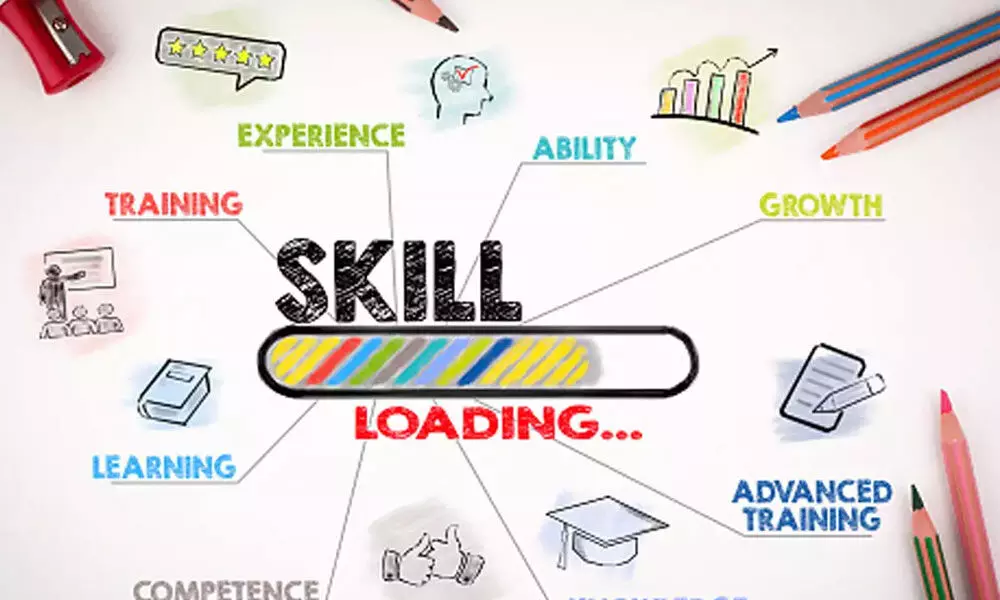Live
- Bejan Daruwalla’s horoscope
- Donations made easy with Kiosk machines
- Rediscovering oneness: A path to peace
- Stop the imitation
- Cops told to focus on cyber frauds
- Social Consciousness: Dharma – Who Decides?
- Ragging may result in emotional trauma: SVIMS Director
- Tribute: Shyam Benegal, A Rock-Solid Legacy
- Abhay Prabhavana Museum has spiritual heritage
- The New Orleans bucket list- 25 things to do in 2025
Just In

Representational image
Students are increasingly coming under pressure to cope with several non-academic areas of study not related to the courses they are pursuing in various State universities and colleges
Hyderabad: 'Vital skills', 'life skills', '21st-century skills'--these are an array of skills that students of under-graduate studies have been now asked to acquire. All these hold good to make them globally employable. Now, they are envisioned to be integrated into the under-graduate courses giving students sleepless nights.
The reason: students are increasingly coming under pressure to cope with several non-academic areas of study not related to the courses they are pursuing in various State universities and colleges.
For example, a student of B Tech, or an under-graduate honours course, has to study environmental science, Constitution of India; intellectual property rights and gender sensitisation lab are mandatory courses. However, they don't carry any credits.
N Sridhar, a second-year student from an autonomous engineering college affiliated to Jawaharlal Nehru Technological University, says, "we have to complete about 160 credits spread over four years. They include practicals, project work."
However, "It is uncertain whether we are allowed to go for an internship for a period of six months in the final semester from the current academic year," says Manisha Reddy, studying third-year B Tech.
The latest skills sets that are briefed to the students in various orientation programmes include global employment skills and life skills. The first is meant to empower students to sail smoothly on landing a job in any country; the latter is to teach them how to be successful in life, both personal and professional. The series of skill sets that students are expected to cope with are: technology skills, diversity and cultural intelligence, leadership skills, interpersonal communication skills, judgment and decision-making, active learning with a growth mindset analytical (critical) thinking, change and adaptability, emotional intelligence (EQ). "Sometimes, the orientation programmes, workshops that we attend are creating more confusion than giving clarity. We have to do our own research online to figure out the meaning, importance and need to acquiring skills," pointed out Saran, a final B Tech student.
The B Tech students are also expected to know a bit of management with a business orientation, to prepare themselves to be entrepreneurs. Students pursuing Artificial Intelligence (AI) and robotics and alleged fields also force one to look at areas like human intelligence, adaptive thinking and solving complex problems. For social entrepreneurship, social intelligence and virtual collaboration is a must. An idea to kick start a start-up also needs service orientation and organisational management. That apart, there are other skills, like cognitive load management and cognitive flexibility. Thus, being pulled apart in the name of imparting a long list of skills makes it all more confusing and burdened than empowering them. Adding to all this, the credit-based detention is what students fear most; it is giving them sleepless nights to cope with.

© 2024 Hyderabad Media House Limited/The Hans India. All rights reserved. Powered by hocalwire.com







